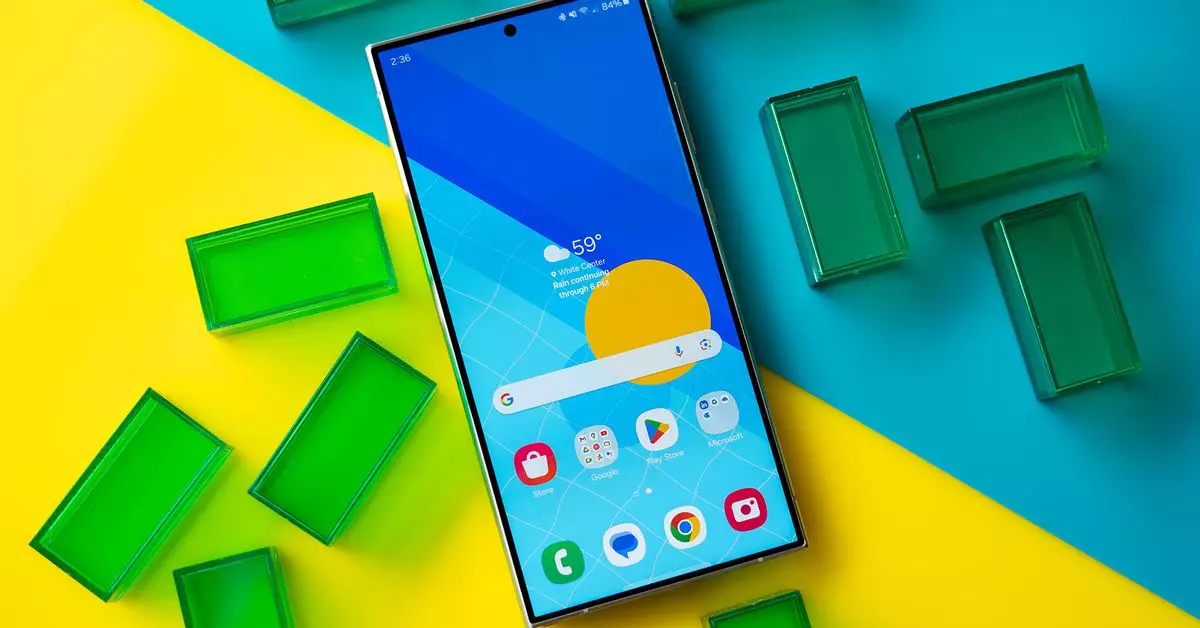Cyber Monday has morphed from its traditional one-day shopping spree into a continuous event that intertwines with Black Friday and extends far beyond. The change in the Thanksgiving calendar this year has led many consumers to embrace a more fluid concept of shopping—a shopping experience driven by convenience rather than a set date. This shift reshapes how we perceive discounts and special offers, allowing shoppers to engage with promotions whenever they desire. This aligns perfectly with our increasingly digitized lifestyles, where flexibility is highly valued.
The evolution of Cyber Monday reflects broader changes in shopping behavior. With online shopping now a daily endeavor for many, consumers can browse and snag deals at their leisure. This vibe-centric approach to shopping is particularly appealing, offering a stress-free alternative to the chaotic, crowded stores.
Highlighting the Best in Mobile Technology
With the surge in shopping comes a vast array of deals on consumer tech. This year, mobile devices take center stage, marking significant advancements and additions to the market. For instance, Apple’s second-generation AirPods Pro have raised the bar with superior noise cancellation and an upgraded charging case, transitioning to USB-C. As wireless earbuds become more of a staple in daily life, such enhancements matter immensely for dedicated audiophiles and casual listeners alike.
Additionally, various accessories, such as Moft’s versatile phone stand and wallet hybrids, showcase the eagerness for multifunctional devices that meet the ever-evolving needs of consumers. Discounts of up to $60 on these trendy accessories reveal the increasing interest in innovative, practical solutions that elevate the user experience without compromising style.
The smartphone landscape remains robust with enticing offers from major brands. Both Verizon and AT&T are luring customers with substantial trade-in deals—up to $1,000 off flagship models such as the iPhone 16 Pro and Pro Max—if customers switch to their selected plans. These significant savings push consumers to consider desirables like the Galaxy S24 Ultra, which boasts an impressive array of features including a stunning display and an integrated stylus.
The Samsung Galaxy Z Flip 6 and Fold 6 exemplify the innovative spirit driving modern smartphones, continuously adding refined design elements and competitive specs like upgraded camera sensors and advanced processors. Each iteration showcases the pursuit of user-centered design and versatility, balancing style and performance, along with drastic markdowns that entice shoppers into the foldable market.
While high-end smartphones often capture the spotlight, the marketplace has plenty of options clustering around affordability. The Galaxy A35 5G stands out as a competitive contender in the budget category, featuring significant durability with its IP67 rating and a long-term commitment to software support. Priced at just $299.99, this model is a reminder that consumers do not necessarily need to empty their wallets to access reliable, high-quality phones.
Similarly, Google’s Pixel 8A is a remarkable offer at $399—a viable choice for users seeking powerful performance without straining their budget. As the line between premium and entry-level devices continues to blur, mid-range models like these demonstrate that style, functionality, and performance are within reach for a broader audience.
As technology continues to advance, consumers are becoming more selective regarding their purchases. This is especially true for campaigns emphasizing sustainability and longevity. Devices that promise extended software support and durability will become attractive factors for a growing segment of eco-conscious shoppers. The discussion around sustainability isn’t merely a trend; it influences purchasing behaviors and choices.
Companies, in response, are shifting their marketing narratives to showcase how their devices align with consumers’ values, culminating in a greater emphasis on responsible consumption practices. The arrival of phones coupled with promises of longevity indicates a positive trend, aligning technology with environmental consciousness.
The ongoing evolution of Cyber Monday represents more than just discounts; it symbolizes a shift in consumer culture towards a lifestyle where technology and shopping intertwine seamlessly with our daily routines. Embracing flexibility with time-sensitive deals, a focus on sustainable practices, and an emphasis on diverse pricing options signifies an exciting future ahead. As shopping habits continue to evolve, consumers are not just participating in a sale; they are partaking in a movement towards a more adaptable, responsible market landscape.

